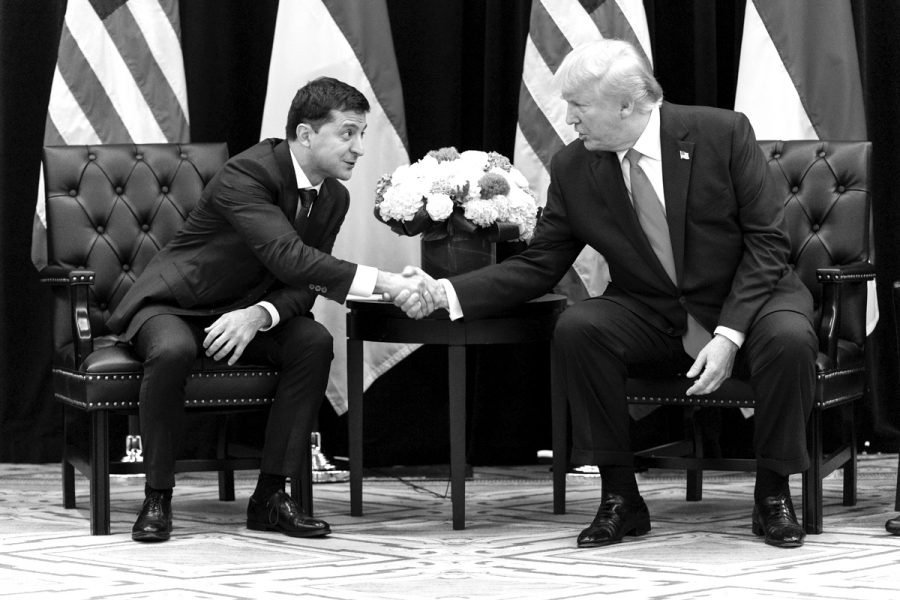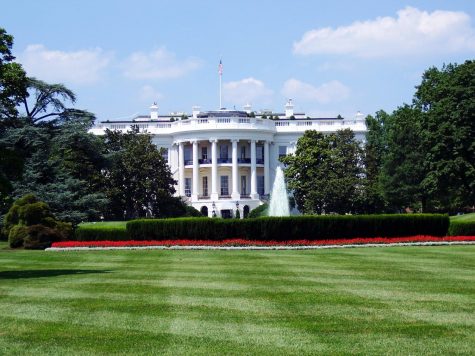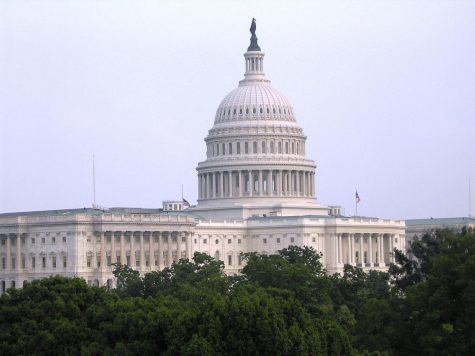President Trump faces misguided backlash
Official White House Photo by Shealah Craighead
President Donald J. Trump participates in a bilateral with Ukraine President Volodymr Zelensky on 25 Sept. 2019 at the Intercontinental New York Barclay on New York City.
Since the 2016 presidential election, the majority of the United States has been divided between supporters of President Trump and those who strongly dislike the current U.S. president, the country has never seemed less united. President Trump has accomplished a plethora of important things including, but not limited to, having the lowest rate of unemployment, progress on creating successful border control and striking back on the war on terrorism. Despite all of these aspects of his presidency showing his potential as a leader, President Trump has faced adversity from other politicians and those who disagree with him.
Nancy Pelosi, the 52nd Speaker of the House of Representatives, has recently caused quite a stir when on Sept. 24, 2019, she announced the House would launch an impeachment inquiry on President Trump over many unlawful things he has been accused of. Pelosi has seemingly been the number one supporter of the impeachment inquiry thus far, though she has never before been a supporter of impeachment. “I’m not for impeachment,” said Pelosi in an interview with the Washington Post in March 2019. “Impeachment is so divisive to the country that unless there’s something so compelling and overwhelming and bipartisan, I don’t think we should go down that path, because it divides the country. And he’s just not worth it.” It is interesting that as the 2020 Presidential Election edges closer with many of President Trump’s supporters preparing to re-elect him, Pelosi would suddenly decide that an impeachment was the solution to this so-called problem.
Though common belief is that impeachment basically means the end of a presidency, impeachment does not in itself remove an official from office. It is the process by which a legislative body presses charges against a government official.
The inquiry came to light when a whistle-blower alleged that President Trump has pressured leaders of foreign nations, most notably Ukraine, during a time when military aid was being withheld, to investigate former Vice President Joe Biden and his son Hunter Biden. Though Ukraine’s Foreign Minister Vadym Prystaiko admitted that his conversations with U.S. ambassador to the European Union Gordon Sondland did not mention a link between U.S. military aid with the possibility of investigating the Bidens, which logically would shut that trail down, the House is still pushing this as a major reason for impeachment. On Oct. 31, the House voted 232-196 to begin procedures for public hearings, which started on Nov. 13.
The hearing began with testimony from William B. Taylor Jr., the top U.S. diplomat in Ukraine, which lacked any kind of solid evidence. He claimed one of his staff members overheard a telephone conversation between President Trump and Gordon D. Sondland, in which Sondland informed President Trump that the Ukrainians were ready to move forward. Taylor alleged that Sondland also claimed that Rudy Giuliani, President Trump’s attorney, is pushing for investigations of the Bidens.
George P. Kent, a senior State Department official testified that Giuliani had conducted a smear campaign against Ukraine and had spoken about using U.S. aid as leverage against President Volodymyr Zelensky of Ukraine in order to gain his support in the investigation of the Bidens. It is obvious that both of the testimonies are no more than hearsay; Taylor’s version of the story was dismissed as secondhand. Additionally, the statement that military aid was withdrawn is untrue, seeing as aid was delivered in September after the whistle-blower had filed the complaint. Representative Jim Jordan of Ohio, an inquisitor on the Intelligence Committee, stated “What you heard did not happen. It’s not just could it have been wrong, the fact is it was wrong, because it did not happen.”
The majority of witnesses at the recent closed door hearings have provided nothing more incriminating than secondhand accounts, all of which are nowhere close to impeachable offenses. With no solid firsthand evidence, Americans have no choice but to question the true motives of those testifying against President Trump and whether they are truly looking for justice against his alleged misconduct or if they feel they are left with no other option to get rid of him.













